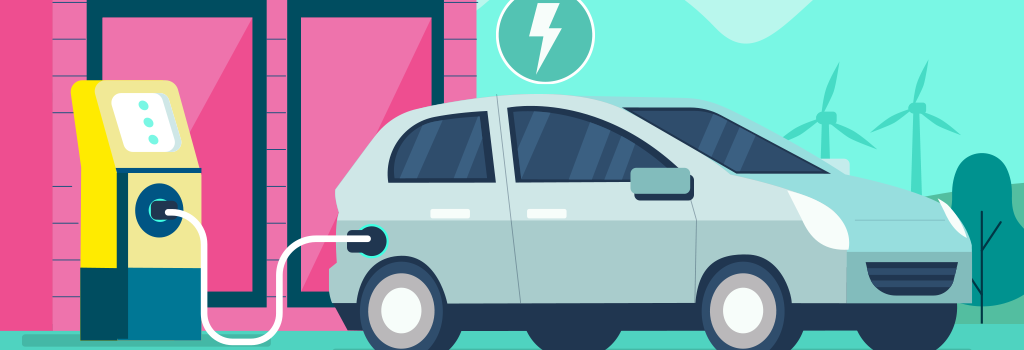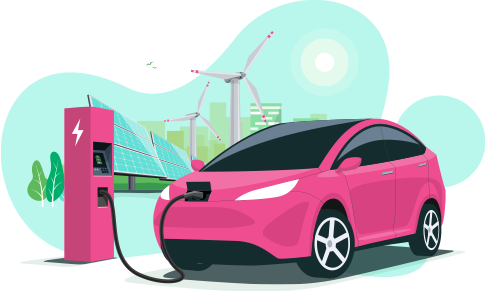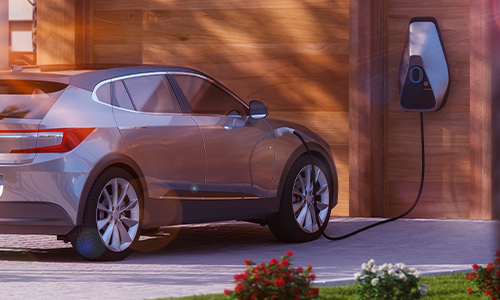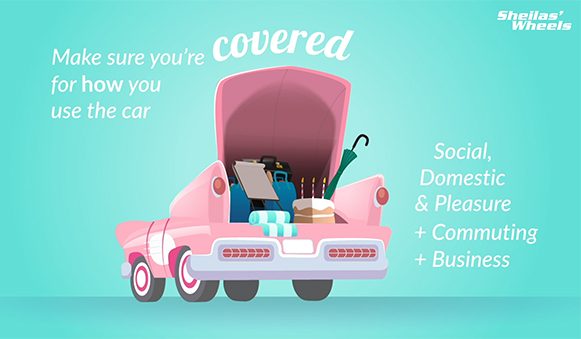Are you ready for an electric vehicle?

With no more brand new petrol or diesel only cars set to be sold in the UK after 2030, you might be starting to think about making the switch to an Electric Vehicle (EV). With many of us having driven 'traditional' fuelled cars for most of our driving lives, this change might be a bit confusing. We've answered three common questions about EVs to help you get prepared for the change.
How far can an EV go on one charge?
We know this is stating the obvious, but the biggest difference between an EV and a petrol or diesel vehicle is – surprise, surprise – the way it’s powered! But while the way the car is powered is different, you're still going to need to keep an eye on how much 'juice in the tank' (or rather, power in the battery!) you've got left before you run out.
Before buying an EV, it’s important to think about your daily mileage and make sure you get one that can get you from A to B without regular stops - just like buying a diesel or petrol car and thinking about the fuel economy and the type of journeys you make. EV ranges vary from between 100 to 300 miles depending on the make and model of the car, so if your driving week is mostly popping to the shops, doing the school run, or a commute of less than 50 miles a day, you shouldn't need to top up your battery during the day - charging overnight at home should be enough (more on that below!)
If you're heading off on a longer drive, it's worth remembering Highway Code rule 91 advises taking a 15 minute break every two hours anyway - so while you're stretching your legs and grabbing a snack, you can pop your car on charge too.

What if my EV battery goes flat on the road?
It’s not easy to run out of fuel these days, but some of us still manage it from time to time. Despite all the built-in precautions and warning lights telling us to top up in good time, it happens… so it’s bound to happen to EV owners too.
Just like a petrol or diesel car, an EV will have a gauge telling you how much power or how many miles approximately you can drive for before you're going to need to recharge, and you'll also get a warning on your dashboard telling you it's time to find a charging point. With a petrol or diesel car, we're all used to finding a garage, filling up, and off you go - maybe grabbing a coffee or a cheeky chocolate bar from the garage too! With an EV it isn't really that different - it just may take a bit longer to charge your car up before setting off again. As of 1st Jan 2022 there were over 24,000 public charging points in the UK, and more are being installed all the time, so your chances of finding one are pretty good. That said, some towns and cities are much better equipped than others, so it’s worth finding out where your nearest charging point is going to be for any journey - there are several apps and websites you can use to do this.
If you do push your luck too far and your EV battery runs flat while you’re driving along, you'll find there’s enough power in reserve for you to pull over to the side of the road and find a safe place to stop. Then you need to call a roadside assistance company, who will come and give you a quick charge – enough to get you to the nearest charging point – or tow you there.
Is it easy to charge an EV at home?
The best time to charge an EV is when you’re not using it, e.g. while you’re at work or at home. You can just plug it into the mains at home and leave it charging overnight, or you can have a rapid charger installed to do the job in much shorter time.
As a rough guide, a small EV hatchback with a range of 140 miles between charges will take about 11 hours to charge up from empty to full on a slow 3.7kW home charger. A faster 7kW charger will do it in about half that time and a rapid charger will get you to full capacity in around one hour. A larger EV with a range of 240 miles will take around 21 hours to fully charge on a slow charger, but you can get a very rapid 150kW charger for some models, which will do it in one hour. Bear in mind that you’ll need a qualified electrician to install any special rapid or ultra-rapid charge points at home. Legislation announced in November 2021 states that in England, all new build homes will need to have EV charging points installed as part of building regulations.

Charging into the future
While there are lots of things to consider when joining the EV revolution, and it might feel more difficult than buying a petrol or diesel car, the key decisions are very similar - how far can I travel, how often do I need to top up, and what type of car best suits my lifestyle. With more and more makes and models coming to the market, it should become easier to find the right EV for you. Plus fully electric vehicles are exempt from road tax too - so one less thing to compare when picking your new wheels! The most important thing is by switching to an EV you're taking another step to reduce pollution and move forward to a greener future - something we all need to think about.
Don't forget, here at Sheilas' Wheels we cover all kinds of cars, including electric ones!
You might also be interested in...

Eco-friendly home tips
Our top 10 tips for an eco-friendly home revolution!

How to make sure your wheels stay covered
Did you know there could be times when your car cover may not apply? Fortunately our helpful caddy is here to help you understand when these might be.
